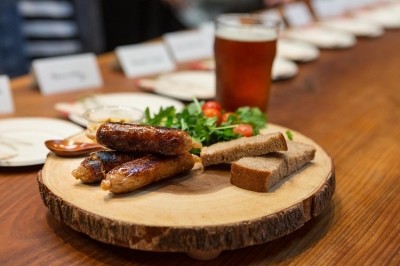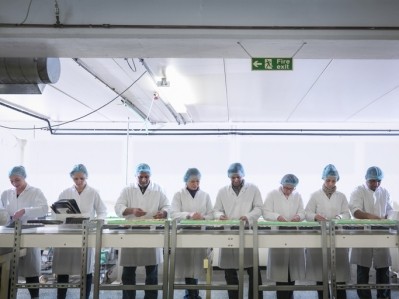Mergers and acquisitions in UK food and beverage sector highest since 2019, but with fewer large deals

Oghma Partners research presents a significant rise in the level of M&A deals in the UK food and beverage market.
Acquisitions from administration
But while the volume of deals is high, some of the circumstances in such deals suggest that the picture is more complicated.
For example, 27% of the deals are acquisitions of companies in administration (an increase from 14.9% in T1). According to Oghma Partners, this could be caused by the rising costs of raw materials and increasing cost of debt, as well as some shrinking markets.
For example, the acquisition of Meatless Farm by VFC Foods and of Plant & Bean by Heather Mills, the company which produces VBites.
After the flurry of start-ups in the plant-based sector in its infancy, this trend suggests that the meat market is shrinking, with more brands flocking to fewer corporate hands.
"The recent deals highlight the concentration that is now going on in the meat free industry encouraged by the shrinking of the category and challenged business models of some of the businesses," James Barton, Analyst at Oghma Partners, told FoodNavigator.
Smaller deals and bolt on deals
While there were a high number of deals, there were comparatively few high value deals. In fact, while 75% of deals were worth £10m or less, only 8.1% were worth £50m or more, well below the five-year average of 13.9%. Deal value has seen a slight recovery, but remains low.
This, suggested Oghma Partners, could have something to do with economic uncertainty. Until investors know whether or not the UK will enter a recession, they will remain cautious, the firm suggested.
Bolt-on deals (when a business adds another business, usually one that provides a similar service, as an arm of its sales) were high in T2, with drinks company Britvic acquiring Jimmy’s iced coffee, seafood company Eperson acquiring Iceland Seafoods, and Richardson Malting acquiring prepared foods company Ragleth.
“These types of transactions can often provide ‘easy reach’ synergies which encourage the acquisition activity in the first place,” said Oghma Partners.
Around 24.2% of deals were with an overseas buyer, lining up with the same period (T2) in 2022, where it was 25%. 27.3% of deals had a financial buyer, a significant uptick from T2 in 2022 where it was 9.1%
Flourishing markets
Among the many deals, there were a few standout markets. The beverage market was particularly active. For example, Breal Capital acquired two microbreweries, Brew by Numbers and Black Sheep Brewer.
The chilled market has seen an exponential uptick in activity as well, with its deals comprising 21.6% of transactions (compared with 6.1% in T1 and just 2% in T2 of 2022).
Overall, Oghma Partners predicts that the value of deals will edge back up as economic uncertainty in the UK declines and investors look towards 2024.
"Our outlook for the remainder of the year continues to be positive, at least from a deal volume standpoint," Barton told us. "The recovery we have seen in activity is likely to be aided by easing food inflation both output and input. Consumer demand has remained steady and this helps provide re-assurance to buyers. As 2023 numbers are delivered and the outlook shifts to 2024, there may be more confidence amongst sellers to bring the larger deals to market."














